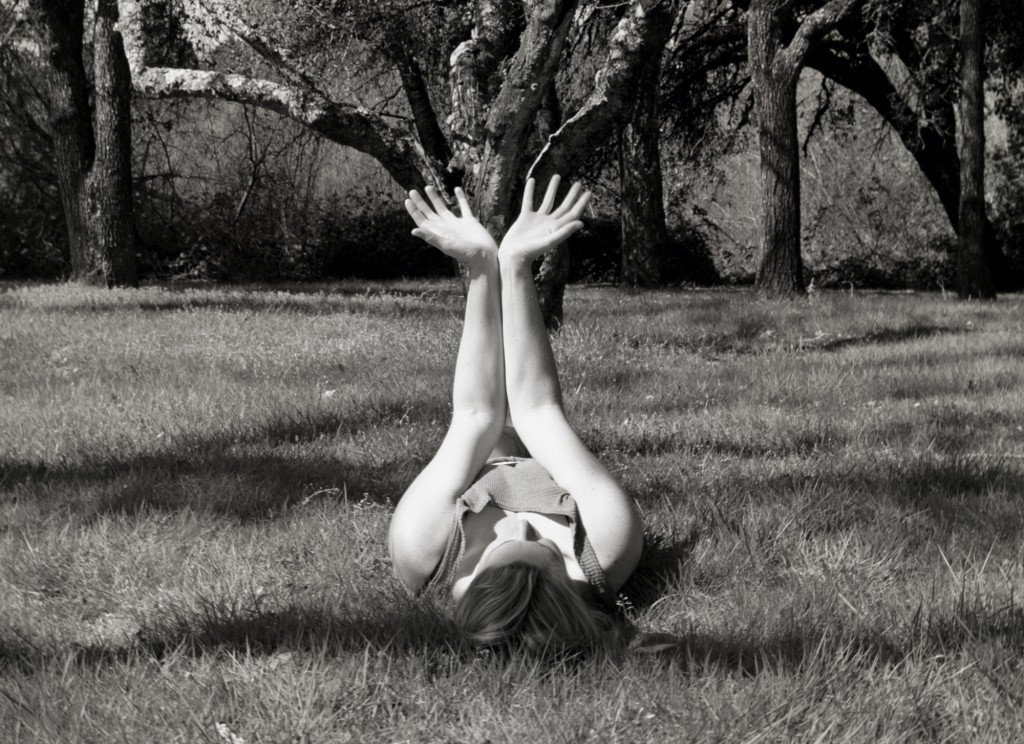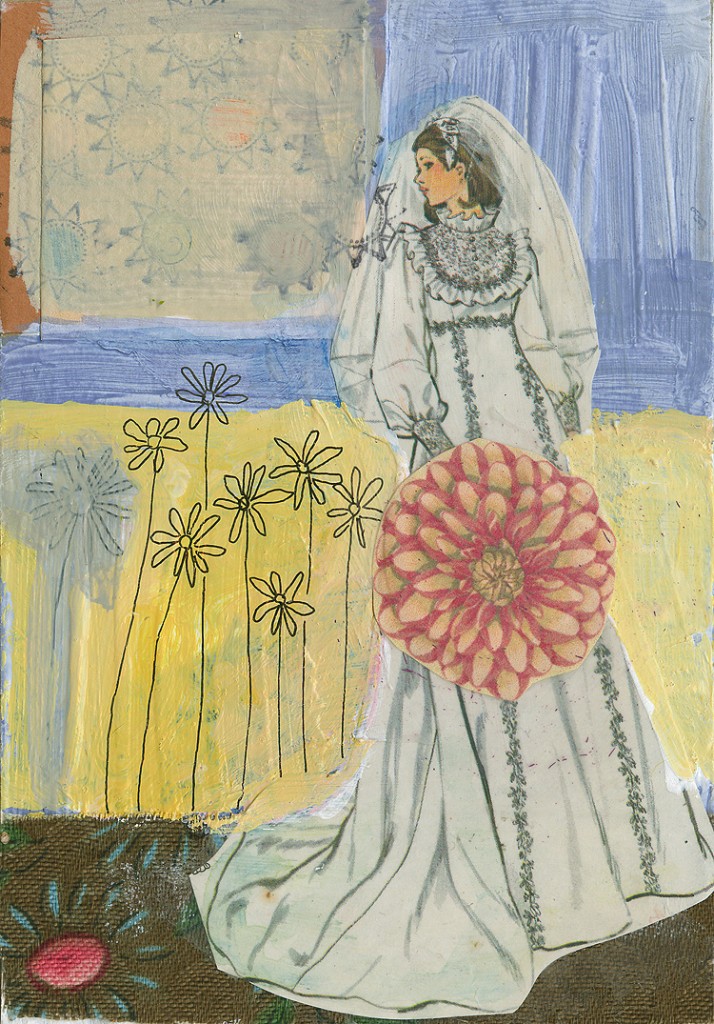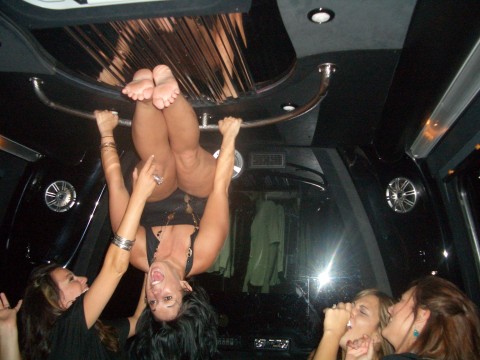
By Jon Magidsohn
Late on Boxing Day, well after dark, I scanned the collection of tools I’d stowed in my backpack to see if I was prepared for my mission: garden spade, claw hammer, flat-head screwdriver, keyhole saw, chisel, anything I thought might help whittle away at the hard soil. If I’d owned an ice-pick, I’m sure I would have packed one. I went upstairs and changed my clothes, convinced my outfit should be head-to-toe black like in the movies. I couldn’t be sure if what I was about to do was illegal, immoral, or simply frowned upon. Still, I thought I should try to blend into the shadows, if only for discretion. I grabbed Sue’s canister from the dresser and carried it downstairs. I put on my black wool coat, threw the backpack full of tools over my shoulder, and quietly went out the back door. I tossed the backpack into the front seat of the car and then carefully strapped the canister into the baby seat in the back. Should I encounter a sudden jolt during the ride, I didn’t want ashes embedded forever in the loosely-woven Toyota upholstery.
Down at the Toronto Beaches, I parked the car on Lee Avenue halfway between our old apartment and the new tree, planted two months before. The tree stood as the closest thing to a gravestone Sue would ever have. I shut off the engine and sat in the dark stillness of the night. All I could hear were the sleepy Lake Ontario waves treading up to the shore and my breath in the icy December air. I unfastened Sue from the car seat, pulled out my backpack, and closed the car door. I walked with purpose toward the lake, cradling the container in my left arm, until I reached the young sugar maple, proud and lustrous under the nearby streetlamp.
Standing on the boardwalk in front of the tree, I momentarily considered changing my mind. The wall of frozen mist suspended over the shore bore down on me. I looked east into the wind and then west toward the lights of downtown to see if any people were out for a late walk. The coast was clear.
I knelt at the tree, placed the canister on the ground, and removed the small spade from my backpack. One last look around before I plunged the spade into the dirt about eight inches from the tree trunk. The ground was harder than I’d expected; the spade barely made a dent, just a tink, tink sound like metal on stone. I reached for the hammer instead and tried loosening the dense earth with the claw end. This proved to be more effective. I scooped out the free soil with my other hand. Clawing and scooping like this for two minutes—I went down maybe four inches—my heart pounded like I was panning for gold. Then I heard voices. I stood up and saw two people and a dog heading my way from the west. I quickly covered the partially dug hole with my backpack and took my cell phone out of my coat pocket. Pacing slowly in front of the tree, I pretended to be just another late-night stroller having a private conversation.
“Yes … Uh-huh … No, no, everything’s fine …,” I said as the people drew even with me, their dog obediently heeling. “I’ll be home soon … I just have one more thing to do.”
The interlopers passed by, and I was left to resume my campaign of digging. But I began to doubt my fortitude. The hole in the ground looked like more of a grave than I’d originally considered. Graves are final; irrevocable. Within them, I imagined, people disintegrate. They disappear forever.
I picked up the hammer again and switched to auto-pilot. Claw. Scoop. Claw. Scoop. I worked quickly, nervously. The ground still resisted like frozen rubber, but I persisted. I had nearly reached what I thought was an acceptable depth when I heard the voices of more people coming down the boardwalk. Backpack over the hole, I stood up and resumed my pantomime with the cell phone.
“Hi, it’s me,” I said. And suddenly Sue was listening on the other end of the phone. “I’m here now, sweetie. I’m at the tree right now … Can you help me?”
She was sitting comfortably in a quiet, warm, white, dare-I-say “heavenly” place, cordless phone in her hand, listening peacefully to my supplication. She wasn’t smiling as I typically pictured her, but rather she had that serious, stern look she’d get when she was fixed on something critical; something she wasn’t quite sure how to manage.
“I need you to steady my hands or whatever it is I need steadying.” I wasn’t sure what I meant by that. I’d never relied on Sue for physical guidance. “We can do this together. Can’t we? You and me forever … And after we do this, I might be able to move forward, little by little.” This was more of a question than a prediction. I had no idea how I’d get on from here.
The people passed by, completely ignoring me. I wiped my eyes and looked at the container of ashes sitting at the foot of the tree. Sue told me to keep talking.
“There’s so much I want to tell you,” I said. “But I’m not sure how. All of my memories are changing colour. When you died, so did the future I thought I’d been promised. Without you things are … blurry.”
I looked toward the lake, the frothy white waves fading to distant black. The cold night burrowed into me under my wool coat, but I’d stopped noticing. I thought of the road trip I’d taken with my ten-month-old son the summer before. We’d left Toronto three months after Sue died and criss-crossed North America for six weeks on our adventure of healing, an expedition meant to kick-start my new life as a widower and single father. Being alone with my son and my thoughts brought clarity after the claustrophobic home-grief and it secured a bond between father and son. It also brought to light some alarming revelations that I wished I’d been able to share with Sue. I wondered if I should confess.
“Everything I’ve discovered since you left is pulling me in a different direction,” I said. “I could have spent the rest of my life with you … and that would have been fantastic … but, you know, we might not have made it. We weren’t perfect. But I’ve accepted that … Because that was us.”
That was us: imperfectly in love.
“I know you loved me. But … we got it wrong a lot of the time.” I swallowed and took a cleansing breath. “If you hadn’t died … we may still have ended up apart.”
Until then I’d kept my epiphanies to myself, but telling her how I felt was proof that I was moving on; the thick, aching emptiness was starting to lift. If Sue had really been there, she may have protested as she usually did, but I was in control of this one. I looked up the road toward the building we lived in a lifetime ago; before we moved away so Sue could chase down her journalism career, before parenthood, before cancer. Eight months earlier as Sue lay in that hospital bed, I’d said goodbye to her and felt the relief of seeing her out of pain. But now my own pain was lifting without aid, without wondering what she’d think.
“The more I think about it,” I said, “the more I believe you would have found some reason to leave me … and I wouldn’t have had the strength to fight you.”
I still loved her but I hated the memories that had recently become clear. I’d awoken that morning knowing I’d been holding onto the past for fear of the future. And if this telephone conversation was any confirmation, Sue was giving me her consent to let go. But I didn’t want to hang up the phone.
“Whatever happens to me from now on, good or bad, it will be because of you. You got me here … and without you, I’ll go in some other direction; some other path than the one you and I would have travelled.”
Instead of dreading a future without Sue, I realized, I could choose to welcome the opportunities that came my way because of her absence. Some good things could still happen to me. I was thirty-five years old; I still had a lot of life left. Accepting the possibility of a good future wouldn’t mean I’d forgotten the life I’d had with Sue. The good wouldn’t negate the bad. They would simply be the two sides of one life.
“I have to do this now … It’s time.”
Maybe this is what Sue meant by life after death. I might have taken her too literally when she spoke of her beliefs. Because I knew she would always live within me. My life evolved with her. Before she came along I was an immature, lazy, idealist looking for a mate. Sue gave me perspective, energy, wisdom and love. She forced me to grow up. She gave me a son. She’d live in him and the person I would become.
I moved over to the hole completely oblivious to whether or not people were walking by. The cold beach had grown peaceful, composed. I could no longer hear the whispering waves.
‘This tree will be here forever and so will you.’
I knelt at the hole, the cell phone still at my ear with Sue breathing on the other end. “Okay, I’m going to hang up now … Here I go … “
The calm of night wrapped me in its dark cloak. I looked down at the shadowy hollow I’d mined, pausing in a moment of pseudo-prayer. I can do this. Everything’s going to be all right.
“I love you … Sweet dreams … Bye.”
I put the phone in my coat pocket, removed the lid from the container and lifted out the clear plastic bag holding the ashes. I’d never taken it out before. The volume seemed curiously low and it weighed less than I’d imagined. A bag of sand the same size would have weighed more. I wondered if all of Sue was in there. My cold hands shook as I fumbled with the knot in the plastic bag. For fear of lingering too long, I tore the bag open and tipped it toward the hole in one motion. The little bits of black, grey and white filled it up like water flowing into a bowl. In the heavy, frozen air no residual ash dust came off the empty bag. She was all out. Without pausing, I put the bag into the container that once held Sue and then ladled the cold dirt back over the ashes with my hands. I stood up and packed it down with my feet, firmly enough to level the soil but not so firm as to feel like I was stomping on her. I surveyed the area, making sure it didn’t look like someone had just buried his wife in the roots of the tree named after her.
But it wasn’t Sue I buried that night. What filled that icy hole was a piece of the past I no longer clung to. Not ignored, just set aside. A past, I’d figured out, that could stay in the past without fear of it extinguishing my future. Eight months of grieving, sadness, hard work, confusion, personal challenges, epiphanies, and loneliness were buried. The tree that sprouted from that struggle stood as a marker in time, resting between what was and what will be.
I packed up my tools and walked back to the car. The icy air filled my lungs and cleared my head. I breathed easier than I had been an hour earlier. Before I stepped onto the sidewalk, I passed a Department of Parks regulation garbage can. The generic canister that Sue had rested in for the past several months had no more symbolic meaning than the lamppost the garbage can was chained to. Sue had always been worth more than what housed her. What had true meaning had been left at the roots of the sugar maple next to the boardwalk. The cheap ceramic container landed at the bottom of the garbage can with a thud.
•••
JON MAGIDSOHN is originally from Toronto, Canada. He has written about fatherhood for dadzclub.com, the Good Men Project, Today’s Parent, and Mummy and Me magazines. He’s also been featured in Mojave River Review, Chicago Literati, What’s Your Story?-Memoir Anthology (Lifetales) and currently publishes three blogs. He moved to London, UK, in 2005 where he received an MA in Creative Non-Fiction from City University. Jon, his wife, Deborah, and their son, Myles, are now in Bangalore, India, where Jon writes full time. www.jonmagidsohn.com

 Follow
Follow



